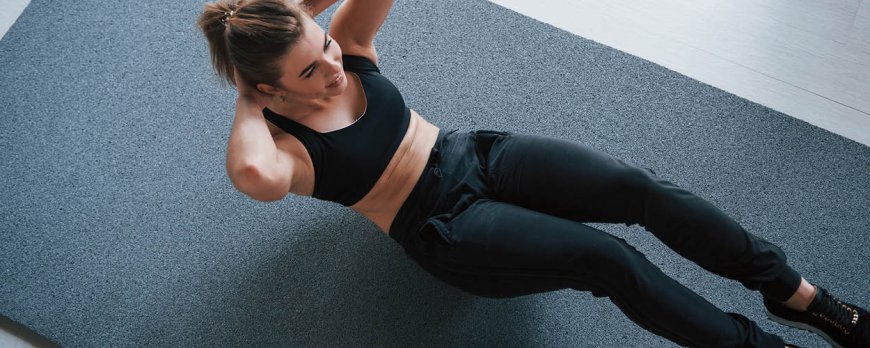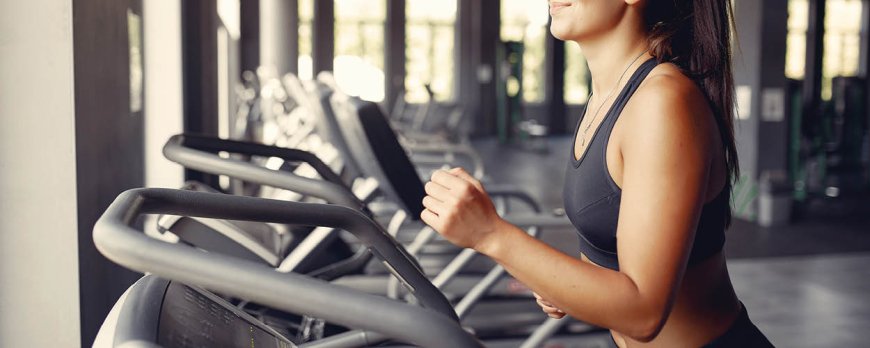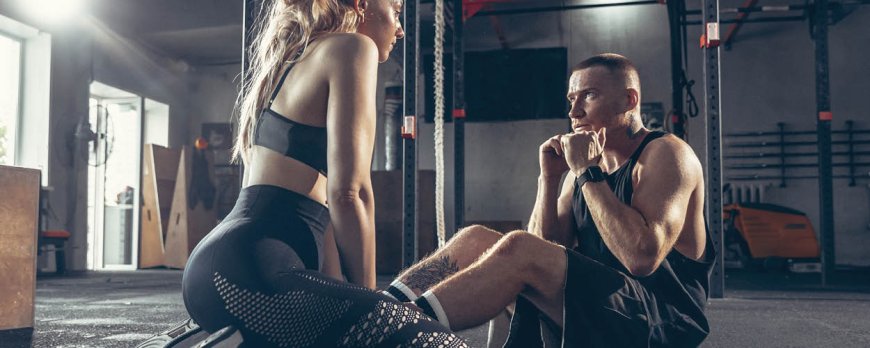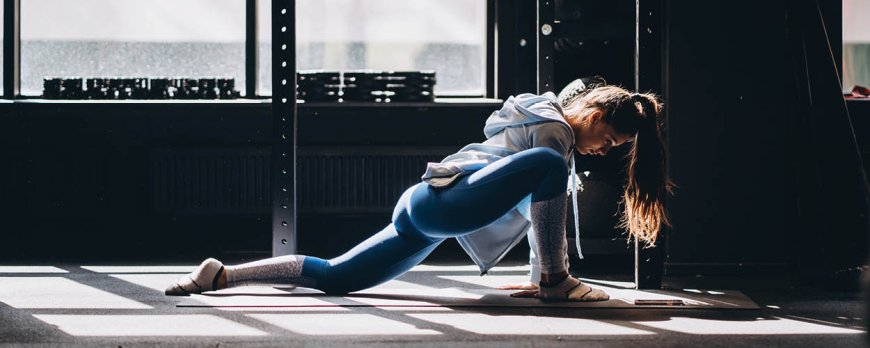Building muscle without weights.
Discover effective techniques for building muscle without weights. Uncover bodyweight exercises & routines optimised for strength and muscular growth.

Building Muscle Without Weights
Building muscle without weights can be achieved through effective bodyweight exercises and calisthenics techniques. These methods are not only convenient and accessible but also highly effective in promoting muscle growth and strength. By utilizing your body's own resistance, you can challenge your muscles and achieve significant results.
Key Takeaways:
- Bodyweight exercises and calisthenics are effective in building muscle without weights.
- Pilates-inspired routines can target the core and lower body muscles for strength and definition.
- Nutrition plays a crucial role in muscle building, with a focus on consuming adequate protein from lean meats, plant-based sources, and supplements if necessary.
- Proper hydration and quality sleep are often overlooked but essential for optimal muscle growth and recovery.
- Carbohydrates provide the energy needed for intense workouts and muscle development.
Building muscle without weights requires a holistic approach that encompasses nutrition, targeted exercises, hydration, rest, and mindset. By incorporating these strategies into your fitness routine, you can achieve impressive muscle growth and strength without relying on traditional weightlifting equipment.

Pilates-Inspired Routine for Core and Lower Body Strength
Incorporating a Pilates-inspired routine into your workout can help strengthen your core and lower body muscles without the need for weights. Pilates exercises focus on controlled movements and engaging the deep stabilizing muscles of the body, making it an effective form of bodyweight strength training.
This routine can be done as a finisher after a regular strength training session or as a quick morning workout. It is designed to target the core and lower body muscles, including the abdominals, glutes, hips, and thighs.
Sample Pilates-Inspired Routine:
- Plank with Leg Lift: Begin in a plank position with hands under shoulders and legs extended. Lift one leg off the ground while maintaining a stable plank position. Alternate legs for 10-12 repetitions on each side.
- Bridge with Single Leg Extension: Lie on your back with knees bent and feet flat on the ground. Lift your hips off the ground into a bridge position. Extend one leg out in front of you while keeping the hips lifted. Lower the leg back down and repeat with the opposite leg. Aim for 10-12 repetitions on each side.
- Pilates Roll-Up: Lie on your back with arms extended overhead and legs extended on the ground. Slowly roll up, reaching your arms towards your toes, and then roll back down to the starting position. Perform 8-10 repetitions.
- Side-Lying Leg Lifts: Lie on your side with legs extended and stacked on top of each other. Lift the top leg up towards the ceiling, keeping the movement controlled and engaging the outer hip muscles. Complete 10-12 repetitions on each side.
Remember to focus on proper form and controlled movements throughout the routine. Pay attention to your breath and engage your core muscles to enhance the effectiveness of each exercise. Consistency is key when it comes to building strength, so aim to perform this routine 2-3 times per week in addition to your regular workout routine.
By incorporating a Pilates-inspired routine into your fitness regimen, you can effectively strengthen your core and lower body muscles while enjoying the benefits of bodyweight exercises. Give it a try and discover the power of Pilates for muscle growth and strength training.
Nutrition for Muscle Building Without Weights
Proper nutrition is crucial for building muscle without weights, with a focus on consuming adequate protein from lean meats, plant-based sources, and supplements if necessary. Including lean meats, such as chicken, turkey, and fish, in your diet can provide high-quality protein, essential amino acids, and important nutrients for muscle growth. If you follow a vegetarian or vegan diet, plant-based proteins like tofu, tempeh, legumes, and quinoa can be excellent alternatives. These sources are not only rich in protein but also offer additional dietary fiber and antioxidants that support overall health.
In addition to whole food sources, supplements can be helpful in meeting your protein needs. Whey protein, for example, is a convenient and easily digestible option for quick protein intake. For those following a plant-based diet, there are also various plant-based protein powders available. When using supplements, it's important to choose products that are made with quality ingredients and are free from unnecessary additives.
The Role of Supplements
While supplements can provide a convenient source of protein, it's essential to remember that they should not replace a balanced diet. They should be used as a supplement to your regular meals and snacks to support your protein intake. Additionally, it's important to consult with a healthcare professional or registered dietitian before starting any new supplements, as they can help determine if they are necessary for your specific needs.
Building Muscle with Nutrition
Building muscle without weights requires a well-rounded approach that includes proper nutrition. In addition to protein, it's crucial to consume enough calories to support your workouts and recovery. Focus on nutrient-dense foods, such as fruits, vegetables, whole grains, and healthy fats, to provide the necessary vitamins, minerals, and antioxidants for optimal muscle growth. By combining a balanced diet with targeted exercises and a consistent workout routine, you can effectively build muscle without the need for weights or expensive equipment.

Importance of Calories and Nutrient-Dense Foods
Consuming enough calories and focusing on nutrient-dense whole foods is essential for supporting muscle growth without weights. When it comes to building muscle, the body needs an adequate amount of fuel to support workouts and the recovery process. This means paying attention to your calorie intake and making sure it aligns with your fitness goals.
One way to ensure you're fueling your body properly is by focusing on nutrient-dense foods. These are foods that are packed with essential vitamins, minerals, and macronutrients while providing fewer calories. Nutrient-dense options include lean meats, such as chicken, turkey, and fish, which are excellent sources of protein. Plant-based proteins like beans, lentils, and tofu are also great choices. Incorporating a variety of colorful fruits and vegetables into your diet ensures you're getting a wide range of antioxidants and fiber.
It's important to note that not all calories are created equal. While it might be tempting to indulge in processed foods and sugary treats, these choices won't provide the nutrients your body needs for muscle growth. Instead, focus on whole grains, such as quinoa and brown rice, as well as healthy fats from sources like avocados, nuts, and olive oil. These foods will not only provide energy but also support overall health and well-being.
The Role of Protein
- Lean meats like chicken, turkey, and fish
- Plant-based proteins such as beans, lentils, and tofu
- Dairy products like Greek yogurt and cottage cheese
- Supplements like whey protein
The Importance of Whole Grains and Healthy Fats
- Whole grains like quinoa and brown rice
- Healthy fats from avocados, nuts, and olive oil
- Colorful fruits and vegetables for antioxidants and fiber
By focusing on consuming enough calories and choosing nutrient-dense foods, you can provide your body with the necessary fuel to support muscle growth without weights. Remember to listen to your body's needs and adjust your calorie intake accordingly, based on your activity level and individual goals. Building muscle is a journey that requires dedication and consistency, both in the gym and in the kitchen.
The Role of Resistance Training
Resistance training, whether through weights, resistance bands, or bodyweight exercises, plays a vital role in muscle growth without weights. By engaging in resistance exercises, you stimulate your muscles, causing microscopic damage that is then repaired and strengthened during the recovery process. This leads to increased muscle size and strength over time.
When it comes to building muscle without weights, bodyweight exercises are a convenient and effective option. They allow you to use your own body as resistance, targeting multiple muscle groups and improving overall strength. Exercises like squats, push-ups, lunges, and pull-ups engage large muscle groups and can be modified to suit different fitness levels.
For more targeted muscle growth, incorporating resistance bands into your routine can provide an additional challenge. These bands provide constant tension throughout the movement, increasing the intensity of the exercise and promoting muscle growth. Incorporating exercises like banded squats, banded push-ups, and banded rows can help target specific muscle groups.
Remember, the key to effective resistance training is progressively increasing the challenge. As your body adapts to the exercises, it's important to add resistance, increase repetitions, or advance to more difficult variations. This progressive overload stimulates further muscle growth and prevents plateaus.
Overlooked Factors - Hydration and Sleep
Hydration and quality sleep are often overlooked factors that can greatly impact muscle growth and recovery when building muscle without weights. Proper hydration is essential for optimal muscle function, as it helps transport nutrients to the muscles and remove waste products. Aim to drink at least eight glasses of water per day, and slightly more if you are engaging in intense workouts. Additionally, consuming electrolytes through sports drinks or natural sources like coconut water can replenish essential minerals lost through sweat and further support hydration.
When it comes to sleep, it is during this restorative period that the body repairs and builds new muscle tissue. Lack of quality sleep can hinder muscle recovery and growth, as well as negatively impact hormone levels and overall performance. Aim to get seven to nine hours of uninterrupted sleep each night to allow your body ample time to repair and regenerate. Establish a bedtime routine that promotes relaxation, such as turning off electronic devices and creating a calm sleep environment.
To prioritize hydration and sleep, consider incorporating them into your daily routine. Keep a water bottle with you throughout the day as a reminder to stay hydrated, and set a regular sleep schedule to ensure you get enough rest. Making these overlooked factors a priority will not only benefit your muscle growth and recovery but also improve your overall health and well-being.
The Role of Carbohydrates
Carbohydrates play a key role in providing the energy needed for intense workouts and muscle growth when building muscle without weights. They are the body's preferred source of fuel, especially during high-intensity exercise. Including carbohydrates in your diet can help you sustain energy levels, enhance performance, and support muscle recovery.
If you're engaging in intense workouts without weights, your body relies heavily on carbohydrates to power through those challenging movements. Complex carbohydrates, such as whole grains, fruits, and vegetables, are ideal choices as they provide a steady release of energy while also delivering essential nutrients and fiber.
It's important to strike a balance with your carbohydrate intake to optimize muscle growth. Consuming carbohydrates before a workout can give you a boost of energy, while consuming them after a workout helps replenish glycogen stores and aids in muscle repair. Experimenting with different types and timing of carbohydrates can help you find what works best for you.
Remember, while carbohydrates are essential for energy and muscle growth, it's important to prioritize a well-rounded diet that includes protein, healthy fats, and other essential nutrients. Focus on consuming whole foods and avoiding excessive processed sugars to support your overall health and fitness goals.

Importance of Form and Mind-Muscle Connection
Focusing on proper form and establishing a mind-muscle connection can enhance muscle growth when building without weights. By executing exercises with correct form, you maximize the effectiveness of each movement, ensuring that you are targeting the intended muscle groups and minimizing the risk of injury.
Engaging in controlled movements allows you to fully activate the muscles being worked, optimizing muscle fiber recruitment and stimulating growth. Concentrate on executing each rep with intentional and deliberate movements, rather than rushing through the exercise.
Establishing a mind-muscle connection involves mentally focusing on the muscle groups you are targeting during each exercise. This heightened awareness allows you to better isolate and activate the specific muscles, leading to more effective muscle contractions and ultimately promoting muscle growth.
Benefits of Form and Mind-Muscle Connection:
- Increased muscle recruitment
- Improved muscle activation
- Reduced risk of injury
- Enhanced muscle growth and development
Remember, building muscle without weights requires attention to detail and intentionality in your approach. By prioritizing proper form and establishing a mind-muscle connection, you can maximize your muscle-building potential and achieve your fitness goals.
Conclusion
Building muscle without weights requires a combination of proper nutrition, targeted exercises, hydration, rest, and mindset. One effective approach is a Pilates-inspired routine that focuses on strengthening the core and lower body muscles through bodyweight movements. This routine can be incorporated as a finisher after a regular strength training session or as a quick morning workout.
Nutrition plays a crucial role in muscle building, and it is essential to consume adequate protein from sources like lean meats, dairy, and plant-based proteins. Supplements can also be beneficial if necessary. It is important to eat enough calories to support workouts and recovery, while prioritizing nutrient-dense whole foods.
Resistance training is key for muscle growth, whether through weights, resistance bands, or bodyweight exercises. Compound movements that engage multiple muscle groups simultaneously, like squats, hinges, presses, rows, cleans, and pull-ups, are particularly effective.
Often overlooked but crucial, hydration and quality sleep greatly impact muscle growth and recovery. Proper hydration and getting seven to nine hours of quality sleep per night are important for optimal results. Additionally, carbohydrates provide the energy needed for intense workouts and muscle growth. While supplements like creatine monohydrate and whey protein can be helpful, they should not replace a balanced diet.
Form and control during exercises, along with establishing a mind-muscle connection, enhance muscle growth. Tracking progress through measurements and photographs can provide an objective way to monitor results and set goals. By combining proper nutrition, targeted exercises, hydration, rest, and mindset, building muscle without weights can be achieved effectively and efficiently.
FAQ
Can I build muscle without using weights?
Yes, building muscle without weights is possible through bodyweight exercises and calisthenics.
What is a Pilates-inspired routine?
A Pilates-inspired routine focuses on strengthening the core and lower body muscles using only bodyweight movements.
Can I incorporate bodyweight exercises into my regular strength training session?
Yes, you can use a bodyweight routine as a finisher after your regular strength training session.
Can I do bodyweight exercises as a quick morning workout?
Absolutely, a bodyweight routine can be done as a quick morning workout to kickstart your day.
How important is nutrition for building muscle without weights?
Proper nutrition is crucial for building muscle, with a focus on consuming adequate protein from lean meats, dairy, plant-based proteins, and supplements if necessary.
Should I focus on consuming enough calories to support my workouts and recovery?
Yes, eating enough calories to support your workouts and recovery is essential when building muscle without weights.
What types of exercises are effective for muscle growth without weights?
Resistance training, whether through weights, resistance bands, or bodyweight exercises, is essential for muscle growth. Compound movements that target multiple muscle groups simultaneously, such as squats, hinges, presses, rows, cleans, and pull-ups, are particularly effective.
Can hydration and sleep impact muscle growth and recovery?
Yes, proper hydration and quality sleep are often overlooked but can greatly impact muscle growth and recovery. Hydrating properly and getting seven to nine hours of quality sleep per night are important for optimal results.
Are carbohydrates important for muscle growth without weights?
Yes, carbohydrates play a key role in providing the energy needed for intense workouts and muscle growth. Including carbohydrates in a balanced diet is important for optimal results.
How important is proper form and controlled movements during exercises?
Focusing on proper form and controlled movements during exercises, while also establishing a mind-muscle connection, can enhance muscle growth without weights.
How can I track my progress when building muscle without weights?
You can track progress through measurements and photographs to provide an objective way to monitor results and set goals when building muscle without weights.
Source Links
- https://www.eatthis.com/muscle-building-tips-for-guys/
- https://www.yahoo.com/lifestyle/tried-pilates-inspired-core-workout-040011242.html
- https://www.essentiallysports.com/bodybuilding-news-you-fool-your-leg-first-bodybuilder-lee-haney-to-shatter-arnold-schwarzeneggers-olympia-record-offered-a-secret-hack-to-build-muscles-without-lifting-heavy/


































































































































